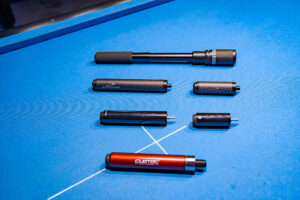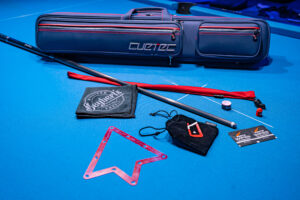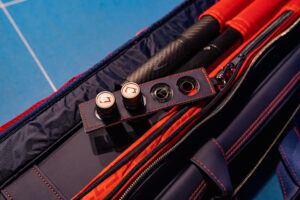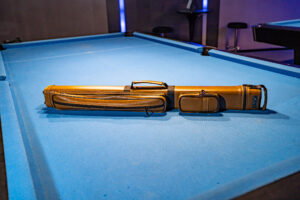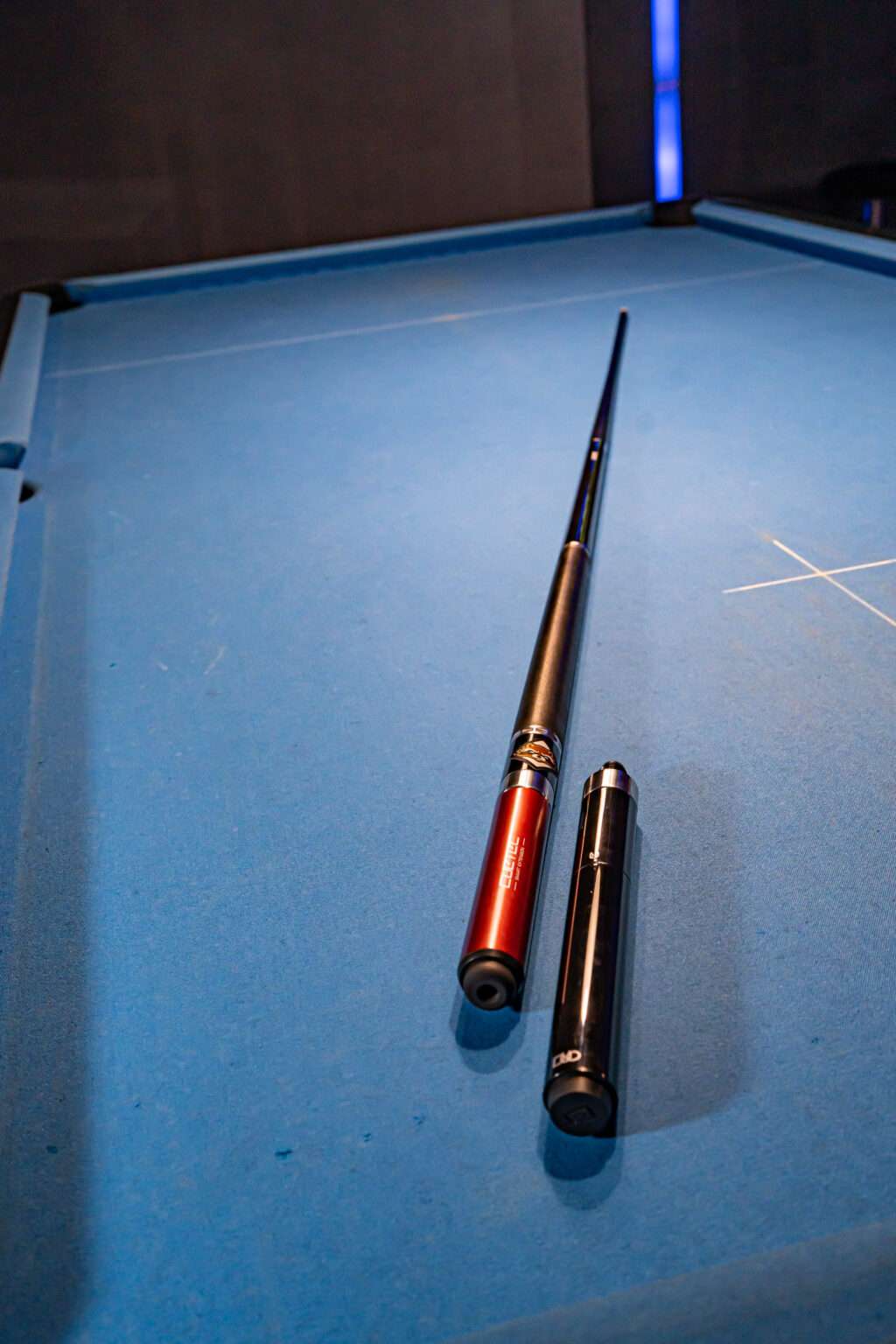
Cuetec SVB First Gen cue with Cuetec Duo extension and Cuetec Smart Extension
Choosing the Right Length
Exploring the Impact of Pool Cue Length
In the realm of pool, every detail matters. From the precision of a player’s stroke to the weight of the cue, each element plays a crucial role in shaping the outcome of a game. One such factor that often influences a player’s performance is the length of their pool cue. Let’s delve into the world of cue lengths, exploring the advantages and disadvantages of longer and shorter cues, their impact on cue balance, shot accuracy, and whether longer cues are more cost-efficient.
Advantages of Longer Cues
- Extended Reach: Perhaps the most apparent advantage of longer cues is their ability to reach shots that would be difficult or impossible with a shorter cue. Whether reaching across the table for a long-distance shot or navigating around obstacles, longer cues provide the necessary reach to tackle challenging situations effectively.
- Improved Leverage: Longer cues offer increased leverage, allowing players to generate more power and control on their shots. This enhanced leverage can be particularly beneficial when executing shots that require extra force or finesse, such as breaking or applying spin to the cue ball.
- Enhanced Stability: Longer cues tend to exhibit greater stability due to their extended length. This stability translates into smoother strokes and reduced cue ball deflection, resulting in more accurate and consistent shot-making.
Disadvantages of Longer Cues
- Weight Distribution: Longer cues often have a different weight distribution compared to shorter cues. The additional length can shift the cue’s balance point, potentially affecting a player’s comfort and control during gameplay.
- Portability: Longer cues are inherently less portable and may be cumbersome to transport, especially in confined spaces or when traveling to tournaments. Players who prioritize portability may find longer cues to be less convenient in certain situations.
Advantages of Shorter Cues
- Maneuverability: Shorter cues offer increased maneuverability, allowing players to navigate tight spaces and execute shots with greater precision. This maneuverability can be advantageous in situations where space is limited or when playing in crowded environments.
- Ease of Control: Shorter cues tend to be lighter and easier to control, making them suitable for players who prefer a more agile and responsive feel. The reduced length can also contribute to a more compact and efficient stroke, enhancing shot accuracy and consistency.
Disadvantages of Shorter Cues
- Limited Reach: The most significant drawback of shorter cues is their limited reach. Players may struggle to reach shots at the far end of the table or when cueing over balls or obstacles, potentially compromising their ability to execute certain shots effectively.
- Reduced Leverage: Shorter cues provide less leverage compared to longer cues, which can limit a player’s ability to generate power and control on their shots. This limitation may be particularly noticeable when attempting break shots or applying spin to the cue ball.
Impact on Cue Balance
The length of a pool cue significantly affects its balance. Longer cues typically have a balance point that is shifted further toward the butt end, while shorter cues have a balance point closer to the tip. This difference in balance can influence a player’s comfort, control, and overall feel when using the cue.
A longer cue with its balance point shifted toward the butt end may feel more stable and provide increased leverage for powerful shots. However, some players may find it less maneuverable and more challenging to control, especially when executing delicate shots that require finesse.
Conversely, a shorter cue with its balance point closer to the tip offers improved maneuverability and ease of control. Players may find it easier to execute precise shots with a shorter cue, particularly in situations where accuracy is paramount. However, the reduced length may limit reach and leverage, requiring players to adjust their technique accordingly.
Impact on Shot Accuracy
The length of a pool cue can have a significant impact on shot accuracy. Longer cues provide increased leverage and stability, allowing players to deliver powerful and controlled shots with greater precision. The extended reach offered by longer cues also enables players to comfortably execute shots from a distance, minimizing the risk of miscues or errors.
Conversely, shorter cues offer enhanced maneuverability and ease of control, which can contribute to improved shot accuracy in certain situations. Players may find it easier to fine-tune their aim and execute delicate shots with precision using a shorter cue. However, the limited reach of shorter cues may pose challenges when attempting long-distance shots or cueing over obstacles.
Cost Efficiency
When considering the cost efficiency of longer versus shorter cues, several factors come into play. Longer cues tend to be more expensive due to the additional materials required to construct them. Additionally, customizations such as intricate designs or specialized materials may further increase the cost of longer cues.
However, the cost of a cue is not solely determined by its length. Factors such as brand reputation, craftsmanship, and additional features also contribute to the overall price. In some cases, shorter cues with premium materials or customizations may command higher prices than standard-length cues.
Ultimately, the cost efficiency of a cue depends on the individual player’s preferences and priorities. Players seeking enhanced performance and versatility may be willing to invest in a longer cue despite the higher cost, while those prioritizing affordability may opt for a shorter cue that meets their basic requirements.
Conclusion
In conclusion, the length of a pool cue is a critical factor that can significantly impact a player’s performance on the table. Longer cues offer extended reach, increased leverage, and enhanced stability, making them suitable for powerful and controlled shots. However, shorter cues provide greater maneuverability, ease of control, and agility, which can contribute to improved shot accuracy in certain situations. Understanding the advantages and disadvantages of longer and shorter cues, as well as their effects on cue balance and shot accuracy, can help players make informed decisions when selecting the right cue for their game. Whether opting for a longer cue for power and stability or a shorter cue for maneuverability and control, finding the perfect balance is key to unlocking success on the billiards table.

